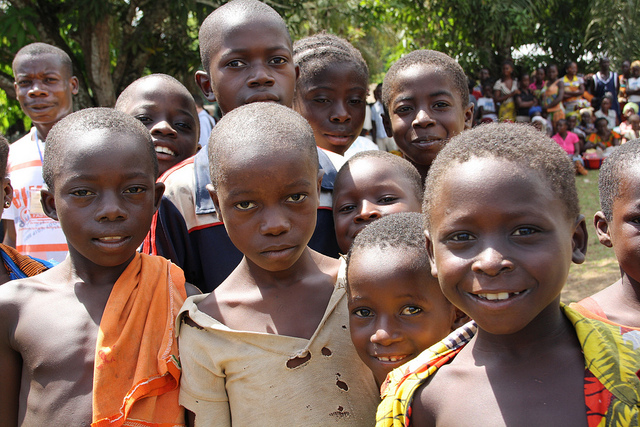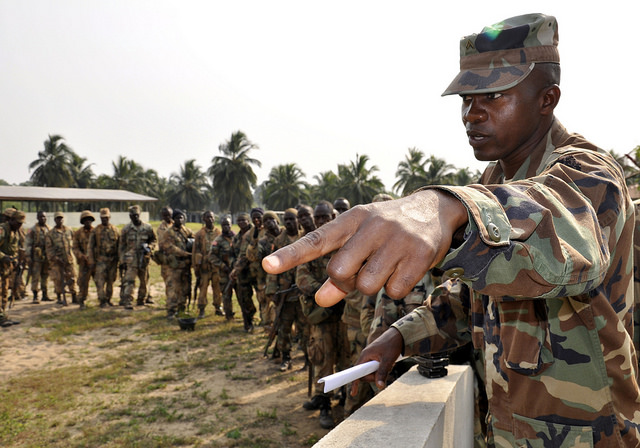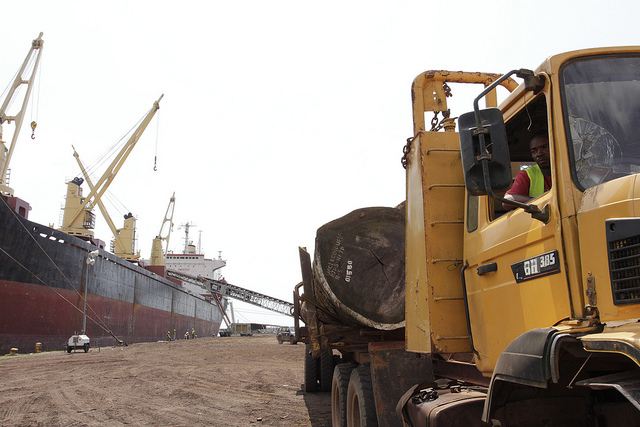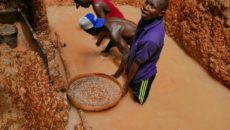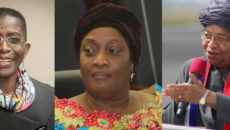In 2006, Sudanese billionaire Mo Ibrahim launched his Ibrahim Index of African Governance to measure and monitor performance across the continent. This year, the tenth iteration of the index was launched, providing a decade’s worth of data on African countries.
For Liberia, this is an opportunity to see the formerly war-torn country’s progress since its first post-war elections. Specifically, the index provides an impartial evaluation of President Ellen Johnson Sirleaf’s decade in office.
Over time, Liberia was fourth and the most improved country after Cote d’Ivoire, Togo, and Zimbabwe in terms of overall governance. The country’s rank of 28th out of 54 countries places it at the continental average.

The top countries registering the greatest improvement in overall governance score over the past 10 years. Source: Mo Ibrahim Foundation
Ibrahim Index uses four major categories to measure governance: safety and rule of law, participation and human rights, sustainable economic activity, and human development. Those categories are broken into subcategories and subsequently, into indicators.
Safety and Rule of Law
Liberia only trailed Cote d’Ivoire as the second most improved country in terms of safety and rule of law, ranking overall 23rd on the continent.
Within subcategories such as national security, Liberia improved the second most, after Uganda. Liberia’s performance is not surprising. After all, there is no known violence regularly carried out by non-state actors. Additionally, an almost non-existent level of political refugees and internally displaced people contribute to Liberia’s high performance. However, the index reflected concerns about cross-border tensions, most likely along the Ivorian border – a relic of Cote d’Ivoire’s civil conflict.
While on average, African countries decreased in the personal safety subcategory, Liberia improved in terms of the public perception of safety and crime, reliability of police, and the extent in which police conduct and abuse are investigated. It also helps that there is a trivial amount of political violence committed by the state.
Liberia, which is the third most improved country after Sierra Leone and Guinea in the rule of law subcategory, benefitted significantly from the elimination of sanctions on individuals associated with the former president, Charles Taylor’s regime.
The independence of the judiciary – the extent to which the legal process is free from interference and whether the government protects and enforces private property and contract rights – is also measured.
The last subcategory used by the Ibrahim Index to measure safety and the rule of law is accountability. Liberia rates very poorly in its ability to provide access to public and legislative records and to allow citizens to access government services online.
Liberia also struggles with the level of corruption and intrusive bureaucracy, in addition to limited accountability for those who abuse power. However, other African countries appear to be lagging in this subcategory as well and while Liberia is not one of the top five improvers, the country improved and is ranked 24th on the continent.
Participation and Human Rights
This is Liberia’s highest ranking category, at 20th but surprisingly Liberia was not among any of the top five most improved even though the country improved significantly over the years.
More remarkably, Liberia, Lesotho, and Uganda are the only countries who have had the same leader over the 10-year period and did not feature in the bottom half of the ranking.

The most improved countries in the participation and human rights category. Source: Mo Ibrahim Foundation
Perhaps, not surprising to anyone is that Liberia ranks 13th across the continent in the Participation subcategory. Political parties and nongovernmental organizations are generally free to participate in the political process without fear, and citizens can join political organizations and vote without intimidation.
This was Liberia’s best performing subcategory and the country trailed only Tunisia, Cote d’Ivoire, and Guinea in terms of improvement over the decade. Particularly illustrative of this freedom of participation, was the remarkable senatorial election in 2014 where the president’s son lost the election by a landslide, something that is unimaginable across many African countries.
In the Rights subcategory, which measures the country’s adherence to international human rights conventions and the freedom of expression, association, and assembly, Liberia is not one of the top five to improve in this subcategory, but the country became better and hovers just above the African average. A poor performance in human rights violations kept Liberia back.
Gender presented the most surprising result as it is the only subcategory where Liberia decreased over the past decade, concerning for a country that elected Africa’s first female president.
Sirleaf’s cabinet hovers around 32 percent female, while women constitute only 11 percent of the legislature. The subcategory also measures the gender balance in education and the level of equal status and protection under the law.
Workplace gender equality, in terms of pay and hiring opportunities, deteriorated the most over a decade of Sirleaf’s rule. As expected, Rwanda is the trailblazer in this area and was the top performer.
Sustainable Economic Activity
The message provided by Ibrahim Index is that Liberia is not a great place to do business. This should not surprise anyone as Liberia ranked 174 out of 190 countries on the World Bank’s 2017 Doing Business report. Liberia ranks 35th, below the African average in this category.
Even though the country has improved significantly – faster than the average improvement in Africa – the pace has not been fast enough.
In the Public Management subcategory, Liberia made a modest improvement but is still below the African average. In Business Environment, Liberia does poorly again, ranking 30th and having an insignificant improvement, especially due to bureaucracy and red tape.
According to the Ibrahim Index, the unemployment rate has only fallen by 0.3 percent over the past ten years and the employment created is almost negligible.
Liberia performs abysmally in the Infrastructure subcategory, ranking 40th on the continent, even despite modest improvements. Liberia’s ranking, however, is likely to make a jump when the Mt. Coffee Hydro Plant comes online next year. However, poor IT infrastructure, roads, and water services will keep Liberia’s ranking low.
Human Development
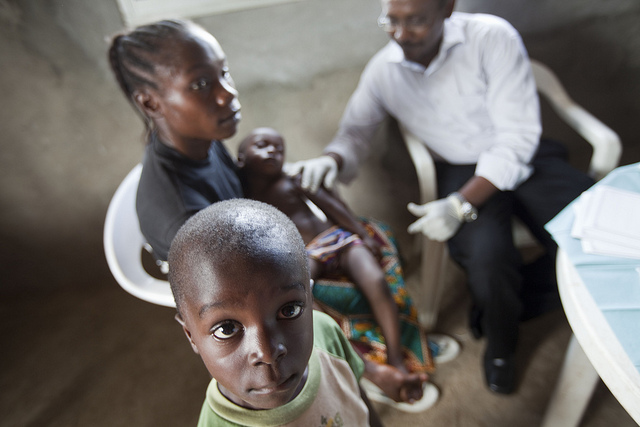
A family receives a free check-up from officers of the United Nations Mission in Liberia, part of the Mission’s medical outreach program. Photo: UN Photo/Staton Winter.
Even if Liberia improved over the ten years in Human Development, it still ranks 45th on the continent. Liberia is not doing well in terms of the living standards of the poor in general, and over the years, the Education subcategory had an almost negligible improvement.
Reeling from the Ebola outbreak, it should not surprise anyone that Liberia’s worst rank in any subcategory is Health, ranking 49th. Even if Liberia did improve over the ten years, many African countries also improved and Liberia’s pace was simply not fast enough.
While Liberia does seem to lag in key areas, the Ibrahim Index shows that the country has improved significantly over the past ten years from 40th on the continent in overall governance to 28th, on par with the continental average.
Liberia’s incredible improvement in the Ibrahim Index could bolster Sirleaf’s chance at winning the world’s most lucrative prize, the Ibrahim Prize. The US$5 million prize is awarded to democratically elected former African heads of state who serve their constitutionally mandated terms and demonstrated exceptional leadership. With the Nobel Peace Prize already in her possession, it is easy to see why Sirleaf would be a good candidate.
Featured photo by Derek Markwell/Department for International Development
